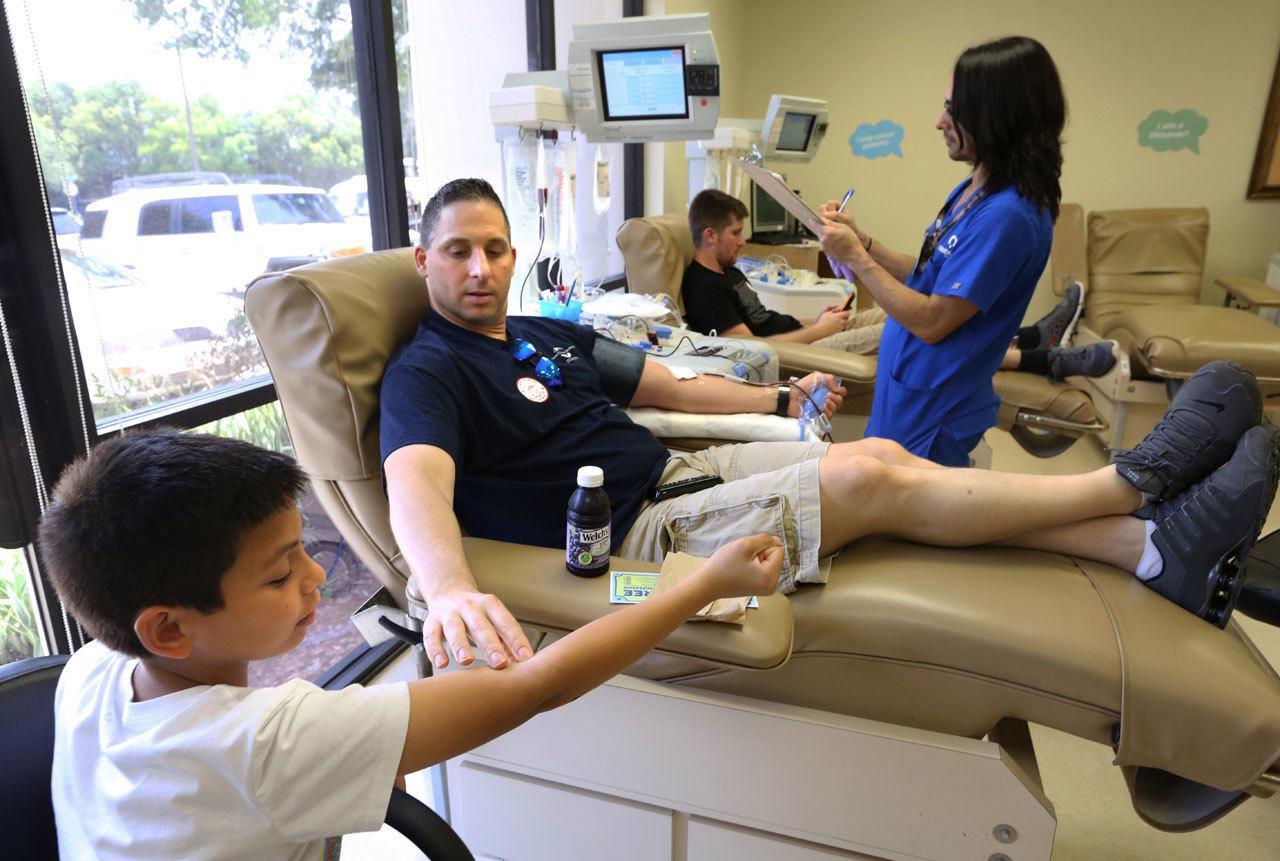By The Herald Editorial Board
In the hours and days after a tragedy or disaster, it’s heartening to see people lining up to give blood, as was the case after the nightclub shooting last month in Orlando, Florida. Added to words of support, sympathy and prayers, blood donations provide a tangible benefit, if not to an immediate victim, then to someone else in the community who is in need of life-saving blood.
Obviously, the need for a supply of blood and the other life-saving components that are provided by donations is greatest before a disaster or other tragic event. Since we can’t predict when blood will be needed most, the best way to ensure an ample supply is for those who are eligible and able to give blood to do so as often as they can.
For those in Washington and Oregon, Bloodworks Northwest, formerly the Puget Sound Blood Center, provides opportunities to donate at drives and blood centers. Bloodworks has two donor centers in Snohomish County: At 2703 Oakes, in downtown Everett; and at 19723 Highway 99, Suite F, in Lynnwood.
Last year more than 107,000 donors were registered at area blood drives or at the Everett center, which this spring marked its 25th year. Among the top donor groups are Boeing employees, Everett Community College, Everett city employees, Snohomish County employees and students, faculty and staff at schools in the Everett School District.
Students, both in high school and college, are among the most regular donors, as are those in their 40s to 60s, said Dr. James AuBuchon, president and CEO of Bloodworks Northwest. The challenge, he said, has been in encouraging donations among young adults, 20 to 40.
It’s not that they are any less generous, AuBuchon said, but the demands of jobs and family can complicate making the time to give blood.
To make it easier for people to donate, Bloodworks is looking for more opportunities for mobile blood drives in the community.
And recent advances in research and testing are showing promise in expanding the pool of donors.
The U.S. Food and Drug Administration recently changed its policy banning donations from gay men, adopted in the 1980s in response to the HIV/AIDS epidemic. The FDA now allows donations from gay men who have not had sexual contact with another man in the past 12 months. Bloodworks, AuBuchon said, is in the process of changing its donor questionnaire and procedures to reflect this change.
The not-for-profit Bloodworks, along with collecting and distributing red blood cells, platelets and plasma to 90 hospitals and medical facilities in Washington, Oregon and Alaska, also is a leader in research.
Bloodworks is undertaking the study of:
Tests for viruses and bacteria that can make transfusions even safer for patients;
Methods for extending the “shelf-life” of blood, which is 42 days for red cells but only five days for platelets;
Treatment and cures for blood disorders, such as hemophilia, which prevents blood from clotting, and thrombosis, which results in unwanted clotting; and
Ways of identifying markers in blood that might identify individuals whose blood can be kept longer or might be a better match for particular patients.
Bloodworks also offers programs that register bone marrow donors and encourages and manages the donation of umbilical-cord blood, the stems cell from which are crucial in treating leukemia, myeloma and other cancers and immune disorders.
As well, Bloodworks’ laboratories test donated organs for infectious diseases prior to implantation for five Northwest states.
For those who for reasons of health or schedule are unable to give blood, we would encourage your financial support for the important work that Bloodworks Northwest performs.
In addition to its usual hours, Bloodworks Northwest will be open from 8 a.m. to 4 p.m. Monday, July 4, for those who want to donate that day.
With the Fourth of July holiday just a few days away, we can’t think of a better time for red-blooded Americans to either donate for the first time or return to give again.
Talk to us
> Give us your news tips.
> Send us a letter to the editor.
> More Herald contact information.

























